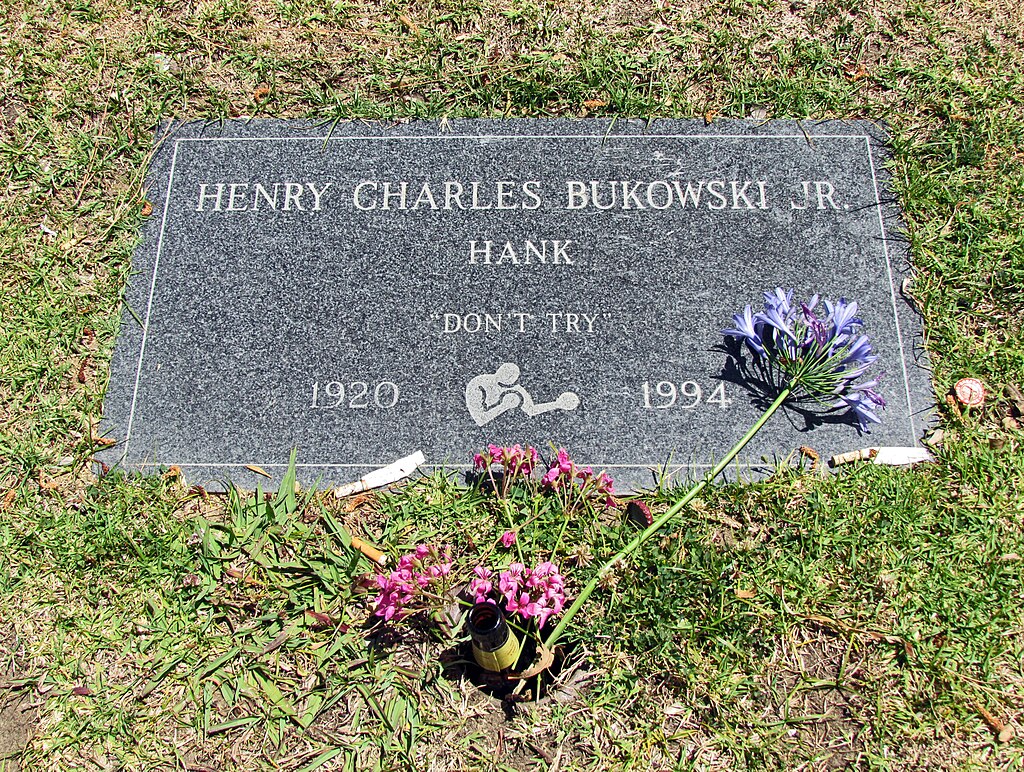Charles Bukowski certainly had themes throughout his work – in dozens of books of poetry and some prose and a screenplay.
He had a disdain for the rich, and he celebrated the common job, while pointing out how it destroyed people. He was the first low-life to say “I’ve had enough and I can’t stand it any more!”
Hank repeatedly mentioned that he didn’t like people. Yet observing them was his work, and to do so he immersed himself in life. The race track was full of people, and the dive bar involved people, and numerous interesting lowlife characters.
Charles Bukowski was, in my opinion, clearly on the autism spectrum. He felt so much, he needed to write. Social interactions were so hard, so he belittled them.
He had the charisma to score with the ladies (despite his believed and actual physical unattractiveness, superficially) and failed at all of them, except for one who blessedly understood him, or at least lovingly tolerated him, Linda Lee Beighle.
My alignment with him (as someone on that spectrum) is many-fold:
- A love of everyone – his novel Women is gorgeous. I love everyone… it’s a lovely thing but not so practical. Bukowski wrote about many degenerates in a loving way.
- Rebellion – he was never content with just the pay-check, the sandwich, the room, the beer. He wanted more as a reward for the shit jobs he did. The repeated subtext of his work was a disdain for the rich who got more from doing less.
- The common man speaking up. It is rare and hard to get to, but can happen. I used sensationalism to reach the world, he used humility.
- To be the “people’s poet” you can’t be too fancy. Speak plainly. Autistic people don’t beat around the bush, they are direct AF.
- Drinking. A major aspect of autism is sensory overload, and numbing yourself with alcohol, for some people, be of a major benefit.
The Autism Spectrum hadn’t been invented until very late in Charles Bukowski’s life, and quite possibly he was unaware of it.
